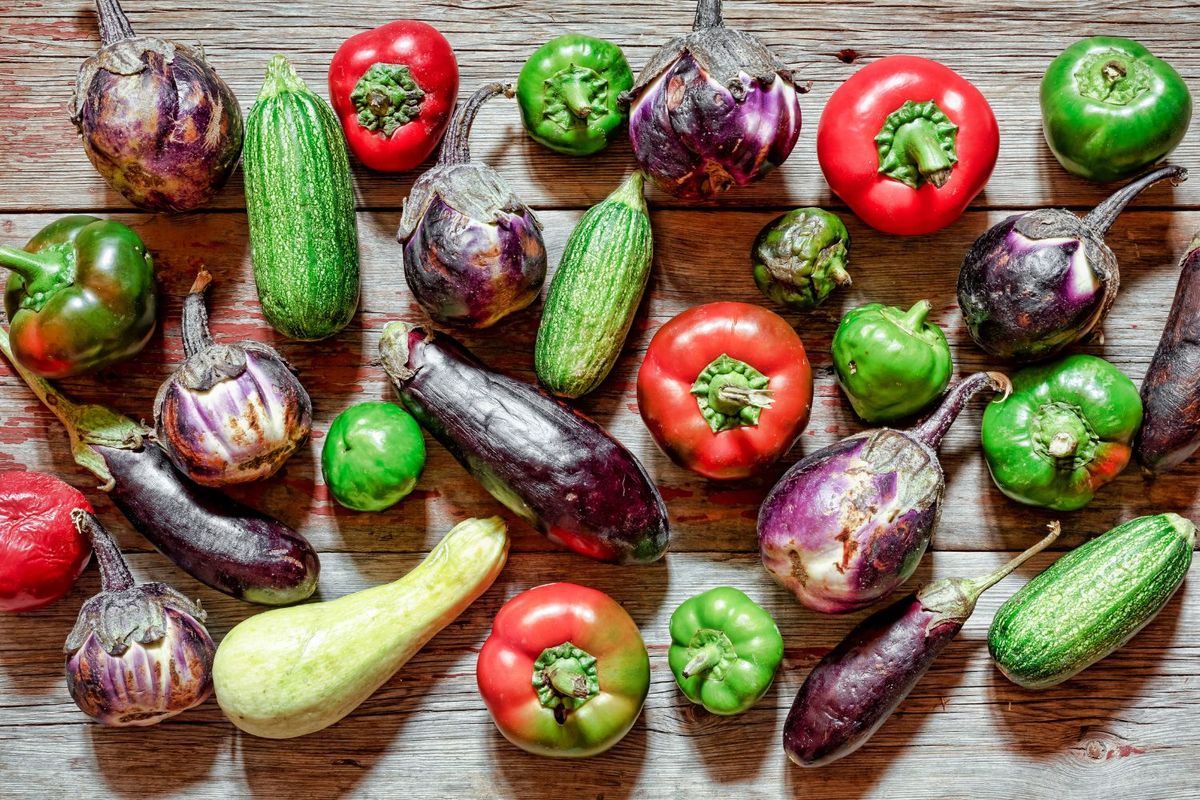The Benefits of Eating Seasonally: Why It's Good for Your Health and the Environment

Eating seasonally is a practice that involves consuming foods that are naturally grown and harvested during a specific time of the year.
This means that the food is fresh and has not undergone any artificial preservation techniques that may affect its nutritional value.
Seasonal eating has been gaining popularity in recent years as more people become aware of the benefits it offers.
One of the main advantages of eating seasonally is that it allows us to enjoy a variety of fresh fruits and vegetables throughout the year.
By consuming foods that are in season, we can diversify our diet and obtain a wide range of nutrients that are essential for our health. Eating seasonally also helps us to appreciate the natural rhythms of the earth and its cycles.
Besides that, it has a positive impact on the environment and the local economy. By purchasing locally grown produce that is in season, we can reduce the carbon footprint associated with the transportation and storage of food.
Additionally, buying from local farmers supports the local economy and helps to create jobs in the community.

What is Seasonal Eating?
Seasonal eating is a way of consuming food that is in sync with nature's cycles.
It means eating fruits and vegetables that are grown and harvested during their natural season.
In other words, it's about eating food that is locally grown and in season, rather than consuming produce that has been shipped from other parts of the world or grown in artificial environments.
Definition of Seasonal Eating
Seasonal eating is defined as the practice of consuming foods that are in season during a specific time of the year. This means that the food is grown and harvested at the right time, in the right place, and under the right conditions.
By eating seasonally, we can enjoy the freshest, most flavorful, and most nutritious fruits and vegetables available.
Seasonal eating also means that we are supporting local farmers and the environment. When we buy locally grown produce, we reduce the carbon footprint associated with transporting food over long distances.
Importance of Eating Seasonally
There are many reasons why eating seasonally is important. First, it allows us to enjoy the freshest and most flavorful produce available. When fruits and vegetables are in season, they are at the peak of their ripeness and have the best flavor. They are also more nutritious, as they are picked at the right time and are not subjected to long periods of transportation and storage.
Second, eating seasonally supports local farmers and the economy.
When we buy produce that is grown locally, we are supporting small-scale farmers and their families. This helps to create jobs and boosts the local economy. It also helps to preserve farmland and maintain the rural character of our communities.
Finally, eating seasonally is better for the environment. When we eat produce that is in season, we reduce the carbon footprint associated with transporting food over long distances. This helps to reduce greenhouse gas emissions and supports sustainable farming practices.
Benefits of Seasonal Eating
Eating seasonally has numerous benefits for our health, budget, environment, and local communities. Below are some of the key benefits of eating seasonally:
Better Nutrition
Seasonal eating encourages a varied diet, as we consume a wider range of fruits and vegetables throughout the year. This helps us to meet our nutritional needs and maintain a healthy and balanced diet. Seasonal produce is also more likely to be fresher and have a higher nutrient content than out-of-season produce that has been transported long distances.
Cost-Effectiveness
Seasonal produce is often cheaper than out-of-season produce, as it does not require as much transportation and storage. By eating seasonally, we can save money on our grocery bills and still enjoy delicious and nutritious meals.

Supporting Local Farmers
When we eat seasonally, we are supporting local farmers and their communities. By buying produce from local farmers, we are helping to sustain local agriculture and promote food security. This also helps to reduce our dependence on imported produce and supports local economies.
Reducing Environmental Impact
Eating seasonally can also help to reduce our carbon footprint and environmental impact. By buying locally grown produce, we are reducing the need for long-distance transportation and the associated emissions. This also helps to reduce food waste, as locally grown produce is more likely to be sold and consumed before it spoils.
Variety in Diet
Seasonal eating encourages us to try new fruits and vegetables and experiment with different recipes. This helps to keep our meals interesting and varied, and can also help us to discover new favorite foods. By eating seasonally, we can broaden our culinary horizons and enjoy the flavors of the season.

How to Incorporate Seasonal Eating into Your Diet
Planning Meals Around Seasonal Produce
One of the easiest ways to incorporate seasonal eating into your diet is by planning meals around what produce is in season. This not only ensures that you are eating fresh, nutrient-dense foods, but it can also be a fun way to experiment with new recipes and flavors.
Start by researching what produce is in season in your area. You can find this information online or by asking local farmers or grocery store employees. Once you know what's in season, plan your meals accordingly. For example, in the summer, you might plan to make salads with fresh tomatoes and cucumbers, while in the fall, you might make soups and stews with root vegetables like carrots and sweet potatoes.
Don't be afraid to get creative with your meal planning. Try new recipes that incorporate seasonal produce, or experiment with different cooking methods to bring out the flavors of the produce.
Shopping at Farmers' Markets and Local Grocery Stores
One of the best ways to ensure that you are eating seasonal produce is by shopping at farmers' markets and local grocery stores. These sources often carry a variety of fresh, locally grown produce that is in season.
When shopping at farmers' markets, talk to the farmers and ask them what produce is in season and how to prepare it. They may have tips and tricks for cooking with seasonal produce that you wouldn't have thought of otherwise.
Shopping at local grocery stores is also a great way to support your community and reduce your carbon footprint. Look for signs or ask employees to point out which produce is in season, and choose those items over imported products that may not be as fresh or nutrient-dense.
Preserving Seasonal Produce for Later Use
If you come across a great deal on seasonal produce, or if you simply want to enjoy it later in the year, consider preserving it for later use. There are many ways to preserve produce, including canning, freezing, and pickling.
Canning is a great way to preserve fruits and vegetables for long periods of time. It involves cooking the produce and sealing it in jars, which can then be stored in a cool, dark place for several months.
Freezing is another popular method of preserving produce. Simply wash and chop the produce, then freeze it in airtight containers or freezer bags.
Pickling is a great way to preserve vegetables. There are many ways to do that depending on the vegetables you are planning to pickle.
By preserving seasonal produce, you can enjoy the flavors and nutrients of fresh produce all year round.
Final Thoughts
Eating seasonal fruits and vegetables has many benefits for our health, the environment, and our local economy.
By eating what is in-season, we can enjoy the freshest and most flavorful produce while supporting local farmers and reducing our carbon footprint.
Seasonal eating also encourages us to try new foods and experiment with different recipes, keeping our meals interesting and varied.
Additionally, by eating seasonally, we are more likely to consume a diverse range of nutrients, as different fruits and vegetables have different nutritional profiles depending on the season.
For example, in the summer we can enjoy juicy watermelon and antioxidant-rich berries, while in the fall we can savor hearty root vegetables and vitamin C-packed squash.
Overall, seasonal eating is a simple and enjoyable way to improve our health, support our community, and protect the environment.
By incorporating more seasonal foods into our diets, we can reap the benefits of fresh, flavorful, and nutritious meals all year round.


